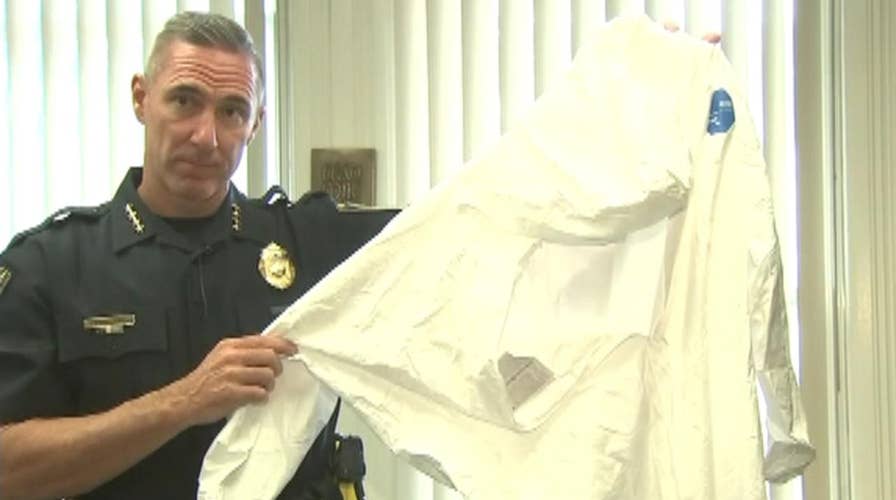Police add hazmat-like gear as fentanyl concerns grow
Police chief in Walpole, Massachusetts seeks to protect first responders
A Massachusetts police chief ordered hazmat-like gear for his officers to help protect them from dangerously powerful drugs that could cause an overdose simply by touching the substance. Each Walpole Police Department patrol car will now be equipped with two hazmat suits, gloves, goggles and respirators to be used when responding to an overdose call, Boston 25 News reported.
Chief John Carmichael placed the order after three officers in Chelsea became lightheaded while responding to a car crash earlier this month. The officers were exposed to an unknown substance after entering the vehicle to help extract three unresponsive victims.
MOM SHARES PHOTO OF DYING DAUGHTER AFTER FATAL OVERDOSE
“This was unknown to them, so they go inside and start to have the same signs and symptoms of an overdose, which is very concerning,” Carmichael told Boston 25 News.
Though the substance in the case Carmichael is referring to was not identified, officers around the country have been on high-alert for powerful drugs that could be dangerous to touch even with gloves on. One drug, dubbed “grey death by authorities in Georgia, is believed to contain heroin, fentanyl and a synthetic opioid called U-47700 and can kill users with a single dose.
Law enforcement officials believe a price drop led users to switch from prescription painkillers to heroin, which is often cut with fentanyl. Most alarming to officials it that users do not have a way of telling if heroin is pure or laced with other drugs before it’s used.
“They’re our first responders, they’re our first line of police officers that are going to these calls, and a lot of times they don’t know what they’re getting into,” Carmichael said of his department. “They are the person that is arriving on scene that’s going to be able to render aid and to help that person.”
Elsewhere in Massachusetts police are testing a new database for documenting opioid overdoses that they hope will help departments share information in real time and get people into treatment. It was developed by criminal justice experts at Roger Williams University in Rhode Island and Kelley Research Associates in Massachusetts.
POLICE TRY OUT NEW DATABASE FOR DOCUMENTING OPIOID OVERDOSES
The system is designed so that when a department responds to an overdose it is recorded into a system, which then alerts the corresponding department in which the victim lives to do a follow-up outreach visit.
“We know people suffering from the crisis don’t just overdose in their town,” East Bridgewater Police Chief Scott Allen, whose department is one of 27 in Plymouth Count using the system, told the Associated Press.










































